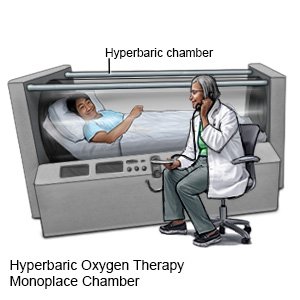Brown Recluse Spider Bite
Medically reviewed by Drugs.com. Last updated on Aug 4, 2025.
Brown recluse spiders are poisonous. The venom may cause severe skin and tissue damage after several hours or days.
WHILE YOU ARE HERE:
Informed consent
is a legal document that explains the tests, treatments, or procedures that you may need. Informed consent means you understand what will be done and can make decisions about what you want. You give your permission when you sign the consent form. You can have someone sign this form for you if you are not able to sign it. You have the right to understand your medical care in words you know. Before you sign the consent form, understand the risks and benefits of what will be done. Make sure all your questions are answered.
An IV
is a small tube placed in your vein that is used to give you medicine or liquids.
Medicines:
- Pain medicine may be given. Do not wait until the pain is severe to ask for more medicine.
- Antibiotics help prevent or treat a bacterial infection.
- Antihistamines help relieve itching.
- Antivenom helps fight the poison that you received.
- Steroids help lower inflammation.
- Td vaccine is a booster shot used to help prevent tetanus and diphtheria. The Td booster may be given to adolescents and adults every 10 years or for certain wounds and injuries.
Tests:
- Blood tests will show how well your organs are functioning.
- A urine sample may be sent to a lab for tests.
- A wound culture is a test to grow and identify the germs that may be in your wound. This helps healthcare providers learn what kind of infection you have and what medicine is best to treat it.
Treatment:
- Surgery may be done if the damaged tissue around your wound becomes large and needs to be removed. Your healthcare provider will clean the area and remove dead tissues to help the wound to heal faster.
- Hyperbaric oxygen therapy used to get more oxygen into your body. The oxygen is given under pressure to help it get into your tissues and blood. You may need to have this therapy more than 1 time.

RISKS:
- Even with treatment, your wound may become worse. You may get very sick from having the venom in your body.
- Untreated spider bites may lead to more serious problems, such as swelling and infections. Severe swelling may cause blood supply problems in the area. Infection may spread to other parts of your body and become life-threatening. People who have diabetes, blood supply problems, or have decreased ability to fight infection are at a higher risk for problems.
CARE AGREEMENT:
You have the right to help plan your care. Learn about your health condition and how it may be treated. Discuss treatment options with your healthcare providers to decide what care you want to receive. You always have the right to refuse treatment.© Copyright Merative 2025 Information is for End User's use only and may not be sold, redistributed or otherwise used for commercial purposes.
The above information is an educational aid only. It is not intended as medical advice for individual conditions or treatments. Talk to your doctor, nurse or pharmacist before following any medical regimen to see if it is safe and effective for you.
Learn more about Brown Recluse Spider Bite
Care guides
Further information
Always consult your healthcare provider to ensure the information displayed on this page applies to your personal circumstances.
